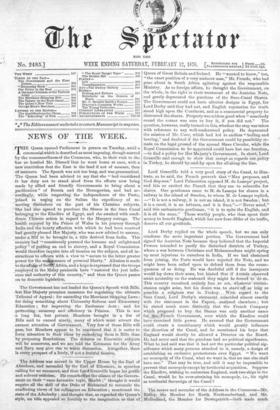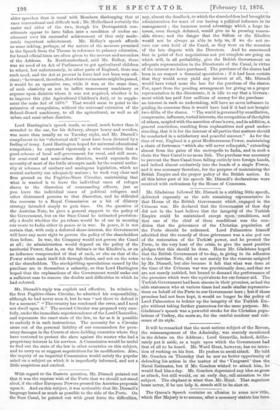The mover and seconder of the Address in the Commons—Mr.
Ridley, the Member for North Northumberland, and Mr. Mulholland, the Member for Downpatrick—both made much abler speeches than is usual with Members discharging that at once conventional and difficult task; Mr. Mulholland certainly the easier and abler of the two, though his Downpatrick con- stituents appear to have fallen into a condition of undue ex- citement over his successful achievement of that only mode- rately important achievement. Mr. Ridley's speech affords us some inkling, perhaps, of the nature of the measure prowised in the Speech from the Throne in reference to primary education, for broad official hints are often given to the movers and seconders of the Address. In Northumberland, said Mr. Ridley, there was no need of an Act of Parliament to get agricultural children to school, but unfortunately, in other parts of England, there was such need, and the Act at present in force had not been very effi- cient; "he trusted, therefore, that whatever measure might be passed, it would be an operative one, while it was, at the same time, of such elasticity as not to inflict unnecessary machinery or expense upon districts where it was not required, whether it be to improve this (the Agricultural Children's Act), or to supple- ment the main Act of 1870." That would seem to point to the extension of compulsion, without the universal extension of the School-Board machinery, to all the agricultural, as well as all urban and semi-urban districts.



































 Previous page
Previous page